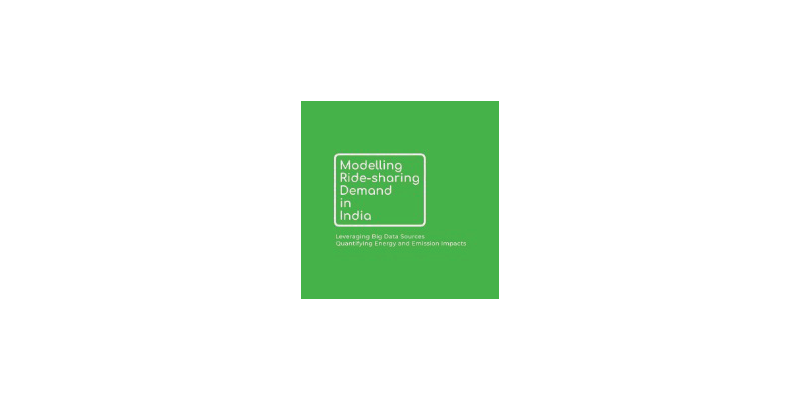Research project
Modelling the energy and environmental impacts of ride-hailing and ride-sharing services in India leveraging the passive data sources
- Start date: 15 March 2019
- End date: 14 March 2021
- Funder: SPARC, UKIERI
- Value: £ 33,283
- Partners and collaborators: Ranbir and Chitra Gupta School of Infrastructure Design and Management, IIT Kharagpur
- Primary investigator: Professor Charisma Choudhury
- External primary investigator: Dr Arkopal K Goswami
- Co-investigators: Professor Zia Wadud
- External co-investigators: Prof Bhargav Mitra & Prof. Bharath H Aithal, IIT Kharagpur
- Postgraduate students: Eeshan Bhaduri

Overview
Ride-hailing and ride-sharing services, as primarily offered by Ola & Uber in India, have been on the rise. The research investigates the impact of such disruptive transport services on urban travel demand and resulting vehicular emissions. The study is a first of its kind, independent research, being conducted in India. The study’s relevance is from the point of view of managing a multimodal urban transport network and subsequently providing seamless access to its users.
Objectives:
- Identifying factors affecting users’ choice of ride-hailing and ride-sharing transport services (e.g. Uber, Ola, Uber Pool, etc.) in India
- Developing methodology to combine traditional and big data for calibration of demand models for ride-hailing and ride-sharing services
- Predicting demand of ride-hailing and ride-sharing services in different planning and policy contexts
- Quantifying energy and air-quality impacts of ride-hailing and ride-sharing services
Impact
- Organised a workshop/special session on Ride-hailing and Ride-sharing at the 5th Annual Conference of the Transport Research Group of India, Bhopal which was attended by 50 faculty members, early career researchers and scholars from different Indian Universities as well as representatives of several government agencies.
- Collected primary data and developed mathematical models to quantify how the socio-demographic characteristics of individuals affected the travel behaviour in the Covid-19 pandemic.
- Initial findings presented at the UKEIRI Webinar on Smart Cities and Transport (29 June 2020)
Publications and outputs
Modelling the effects of Covid-19 on mode choice behaviour in India (under review).
Journal Papers:
Bhaduri E, BS M, Wadud Z, Goswami A, Choudhury C. 2020. Modelling the effects of COVID-19 on travel mode choice behaviour in India. Transportation Research Interdisciplinary Perspectives, Volume 8, November 2020, 100273
https://doi.org/10.1016/j.trip.2020.100273
Conference Presentations:
Bhaduri E, BS M, Wadud Z, Goswami A, Choudhury C. 2020. Modelling the effects of COVID-19 on travel behaviour in India, Bridging Transport Research, August 2020.
Bhaduri E, BS M, Wadud Z, Goswami A, Choudhury C. 2020. Modelling the effects of COVID-19 on mode choice behaviour in India, 100th Annual Meeting of the Transportation Research Board, January 2021.
Other Outputs:
Goswami, A. and Choudhury C. 2020. Developing an integrated land use - transport - emissions model utilising emerging big data sources for quantifying the energy and environmental impacts of ridesharing services, SPARC-UKIERI Webinar, June 2020.
Questionnaires of Survey on Impact of COVID-19 on Ride-hailing and Ride Sharing.

